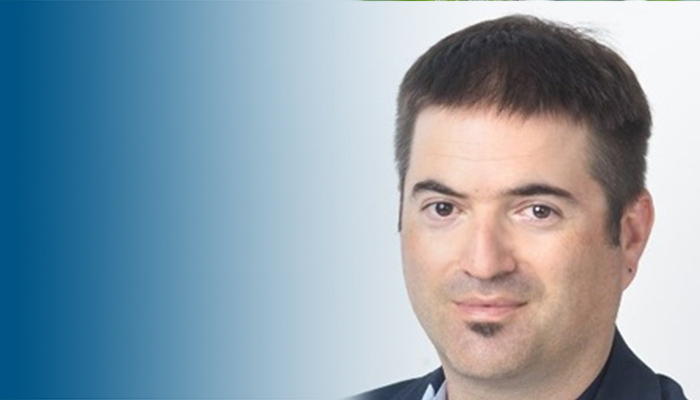HOW CAN WE HELP YOU? Call 1-800-TRY-CHOP
In This Section
"Curiosity is the Biggest Gift:" Faculty Spotlight With Ran Barzilay, MD, PhD

Ran Barzilay, MD, PhD
Editor’s Note: Welcome to our monthly Faculty Spotlight series, in which we sit down with faculty members at Children’s Hospital of Philadelphia Research Institute to learn more about their research and roles. Through these spotlights, our readers meet the diverse, dedicated, and distinctive individuals who lead our research community in our mission to improve children’s health. This year, we will be asking our featured scientists about mentorship — why it matters and how it has influenced their careers. In this Q&A, we spoke with Ran Barzilay, MD, PhD, assistant professor in the Lifespan Brain Institute and psychiatrist in the Department of Child and Adolescent Psychiatry. Stay tuned for more from our Faculty Spotlight series throughout this year!
How long have you been at CHOP, and can you tell us about your research specialty?
I joined CHOP in August 2017. I came here after 16 years of training in Israel where I completed an MD in clinical training and a PhD in molecular neuroscience with a child and adolescent psychiatry clinical specialty.
I am a physician-scientist child psychiatrist. My lab uses multimodal data on large samples of youth and integrates biological, clinical, environmental, and cognitive measures to understand why some kids are resilient and others are susceptible to serious mental health conditions, including suicidality.
Why did you choose to focus on that specialty?
My mission is to mitigate the mental health burden of youth, which has exacerbated following the pandemic in what is now considered a global youth mental health crisis. I am specifically committed to research that addresses youth suicide. Suicide is the second leading cause of death for youth in the U.S., and we need to better understand what drives youth suicidal behavior so that we can improve suicide prevention efforts.
Can you describe a current or recent research project that you are excited about?
We are now studying how environmental stressors can help explain suicidality risk in youth. It turns out that environmental stress is a major driver of mental health burden, in addition to genetic risk. Notably, environment is more malleable to change than genes, and therefore it may present an opportunity for interventions. One of our recent contributions was the finding that experiences of racial/ethnic discrimination in youth aged 11 are associated with suicidality, over and above other types of stressors. This study is important as it highlights discrimination as a potential suicidality risk factor in early adolescence that needs to be addressed at the societal level and needs to be taken into account as part of the suicidality risk assessment in teens.
What are the long-term research questions you hope to answer?
We want to know why some kids who grow up under stress become suicidal and others don’t. When we know that, we can develop targeted, tailored preventative interventions that enhance resilience and reduce youth suicide risk. I think that psychiatry should follow the footsteps of other medical disciplines, moving toward primary prevention before mental health burden reaches “psychiatric” clinical threshold.
How has mentorship has influenced your career? Why do you believe mentoring is important in science?
I was lucky enough to have had a few mentors along the way, including today. My PhD adviser taught me that curiosity is the biggest gift, and that being a scientist is the most fun profession when you get paid to play with ideas and experiments every day.
My clinical mentors taught me to be humble, to remember that the challenges that we address treating youth with serious psychiatric conditions are bigger that the ego and the capacity of one investigator, and that we need teamwork to really make progress.
Perhaps the most precious advice I got from my clinician-scientist mentors was to always be critical of the question, “How will the science I do today impact the lives of patients tomorrow?” I find that this ideal keeps me focused and motivated, and I hope to instill these values in junior scientists I get to work with.


